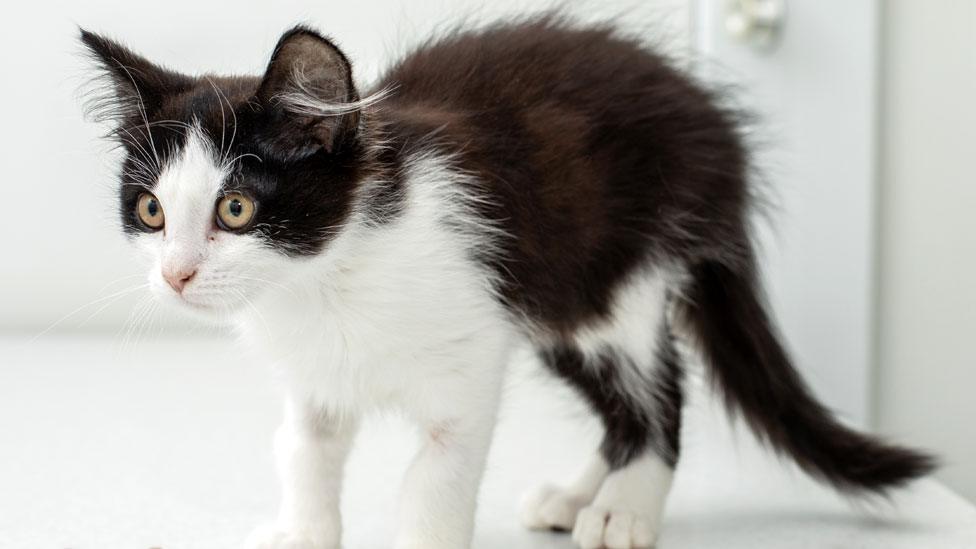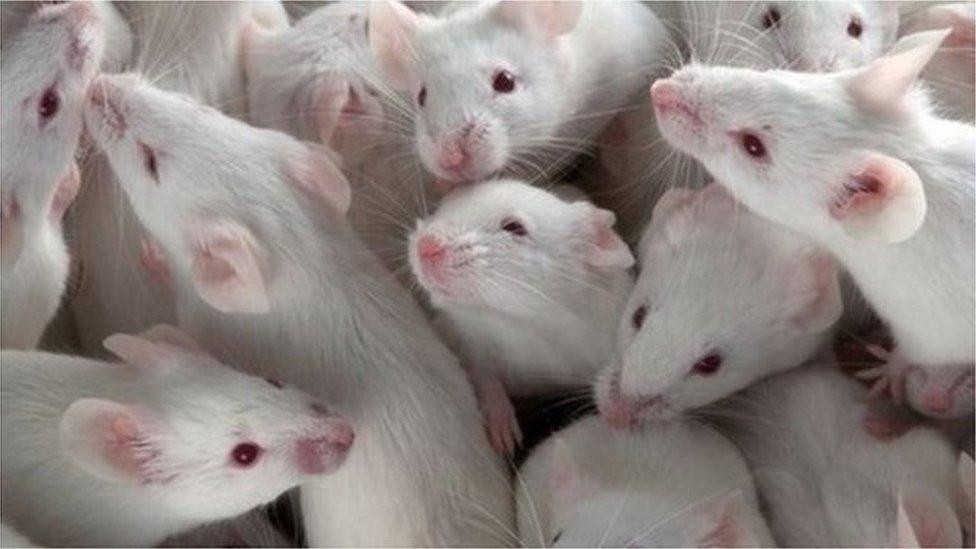Animal testing: US Senate bill seeks an end to kitten research deaths
- Published

The US Department of Agriculture uses kittens for its research into toxoplasmosis, a disease caused by parasites
US senator Jeff Merkley has introduced a Senate bill aiming to stop the Department of Agriculture (USDA) from killing kittens it uses in experiments.
The Oregon Democrat said the USDA breeds up to 100 kittens a year.
They are used in research into toxoplasmosis - a parasitic illness, which can be serious for unborn children and people with compromised immune systems.
Cats are the only animals whose faeces contains the parasite.
The animals are fed infected meat, and the parasite's eggs are harvested for use in other experiments.
The cats are killed after the research, but Mr Merkley believes they should be adopted instead.
He said veterinarians had told him the kittens, which are euthanised before they are three months old, could be treated for the parasite and emerge "very healthy".
A version of the KITTEN Act - the full title of which is the "Kittens in Traumatic Testing Ends Now Act of 2018" - was introduced in the House of Representatives, the lower chamber of the US Congress, by Republican Congressman Mike Bishop - before he lost his seat in the November mid-term elections.
Some 61 Republicans and Democrats have now co-sponsored it.
The USDA has called the figure of 100 kittens a "serious over-estimation", and told CNN it "makes every effort to minimize the number of cats used".
The agency said it does not try to have the cats adopted due to fears they could pose a risk to their new families.
Mr Merkley said he had spoken to experts who disagreed, adding: "There's absolutely little cost and no reason not to treat them and adopt them out to American families."
- Published29 June 2017

- Published13 July 2017
